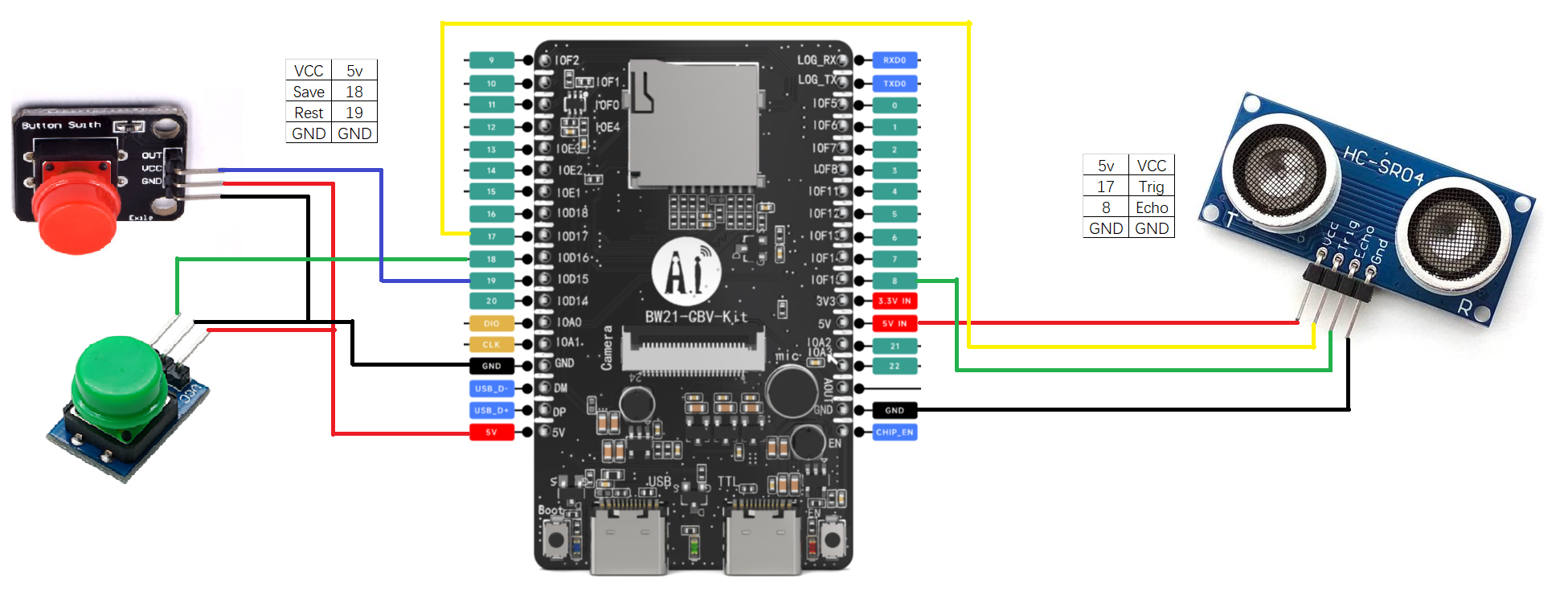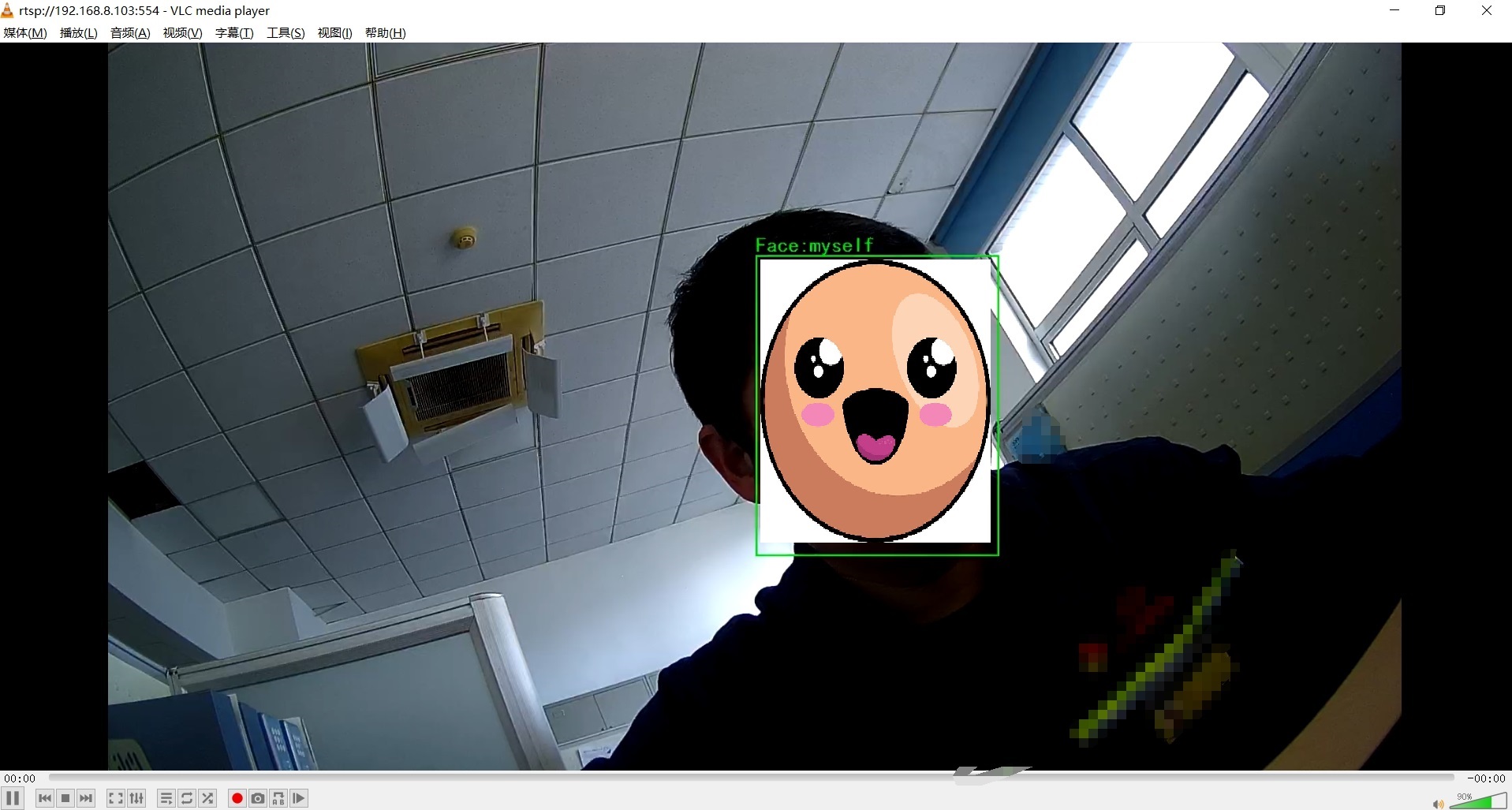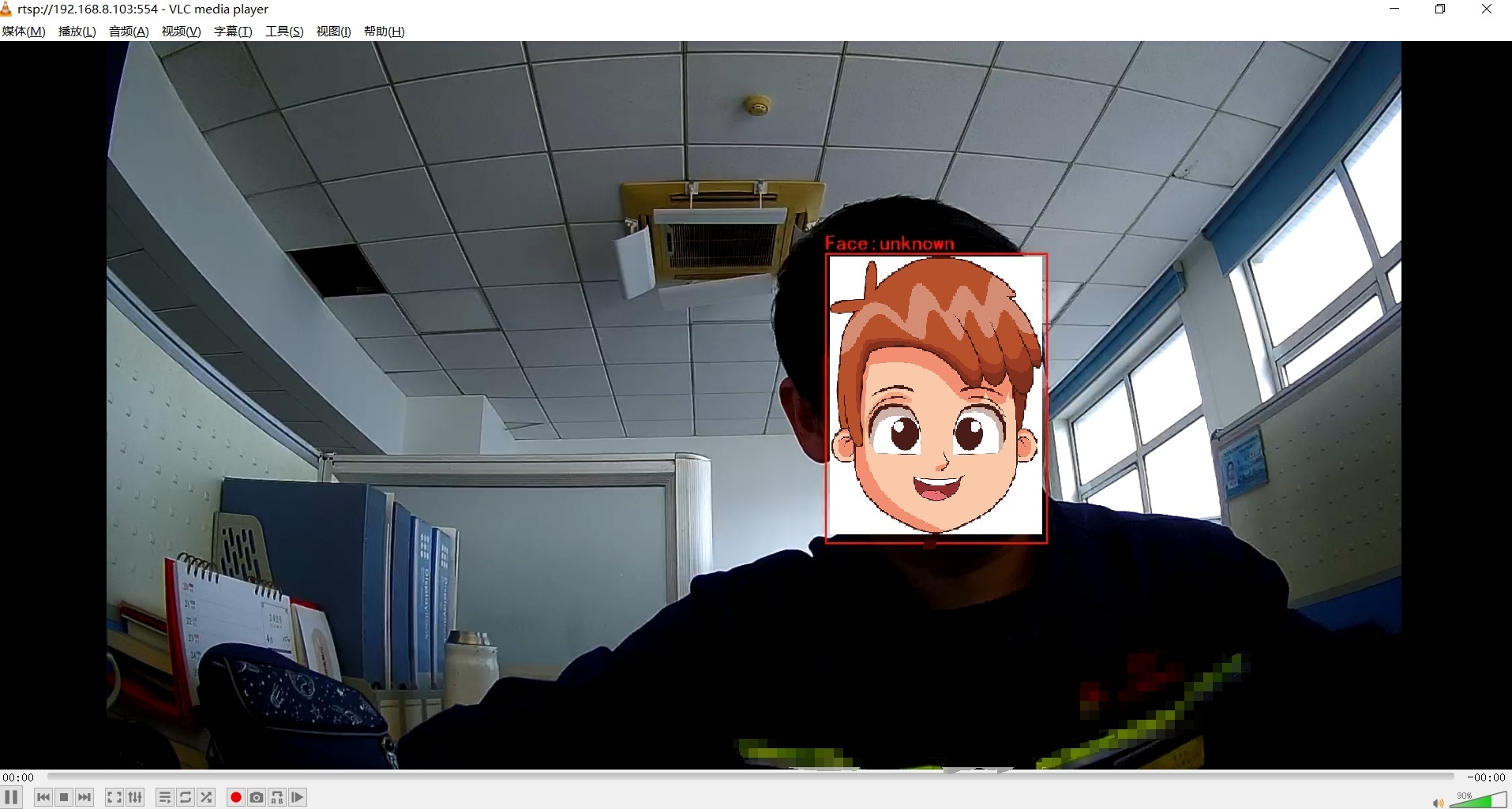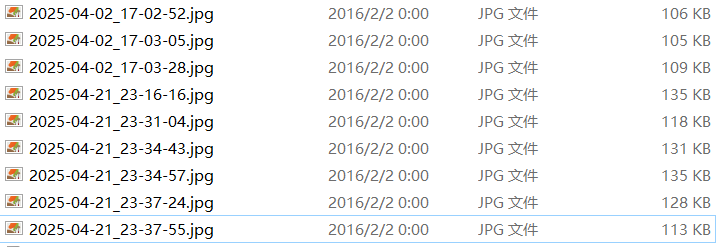[i=s] 本帖最后由 风云龙一 于 2025-4-22 15:32 编辑 [/i]
功能介绍
你知道当你不在工位的时候,谁过来坐过吗?那谁是什么时间坐你这的?她/他坐你工作都在看哪?带着这些好奇,我用小安派BW21-CBV-Kit设计了一个工位监控神器。它能帮你偷偷记录他/她的身影......
用料
- BW21-CBV-Kit x1
- SD 卡 x1
- 轻触按键 x2
- 绿色 LED(可选)x1
- 红色 LED(可选)x1
- 超声波测距传感器 x1
功能实现
1、硬件接线

2、软件开发
软件使用Arduino,基于示例RTSPFaceRecognition进行修改。

代码详解
#include "WiFi.h"
#include "StreamIO.h"
#include "VideoStream.h"
#include "RTSP.h"
#include "NNFaceDetectionRecognition.h"
#include "VideoStreamOverlay.h"
#include <NTPClient.h>
#include <WiFiUdp.h>
#include "AmebaFatFS.h"
#include <NewPing.h>
#define TRIGGER_PIN 17
#define ECHO_PIN 8
#define MAX_DISTANCE 400
NewPing sonar(TRIGGER_PIN,ECHO_PIN,MAX_DISTANCE);
#define IOD18_PIN 18
#define IOD19_PIN 19
#define CHANNEL 0
#define CHANNELNN 3
// Lower resolution for NN processing
#define NNWIDTH 576
#define NNHEIGHT 320
float dis = 0.0;
String name = "";
uint32_t img_addr = 0;
uint32_t img_len = 0;
unsigned long startTime = 0; // 定义一个变量用于记录开始时间
bool GPIOisHigh = false; // 用于标记引脚是否已经变为高电平
bool facedetisTRUE = false; // 用于标记是否检测到人脸
AmebaFatFS fs;
VideoSetting config(VIDEO_FHD, CAM_FPS, VIDEO_JPEG, 1);
// VideoSetting config(VIDEO_FHD, 30, VIDEO_H264, 0);
VideoSetting configNN(NNWIDTH, NNHEIGHT, 10, VIDEO_RGB, 0);
NNFaceDetectionRecognition facerecog;
RTSP rtsp;
StreamIO videoStreamer(1, 1);
StreamIO videoStreamerFDFR(1, 1);
StreamIO videoStreamerRGBFD(1, 1);
char ssid[] = "你的wifi名"; // your network SSID (name) Hello World
char pass[] = "你的wifi密码"; // your network password jwz@123456
int status = WL_IDLE_STATUS;
WiFiUDP ntpUDP;
NTPClient timeClient(ntpUDP, "pool.ntp.org", 28800, 60000);
IPAddress ip;
int rtsp_portnum;
// 辅助函数,用于在数字小于 10 时前面补 0
String padWithZero(int num) {
return (num < 10) ? "0" + String(num) : String(num);
}
// 生成日期时间格式的文件名
String generateFileName() {
// 更新时间
timeClient.update();
// 获取时间戳
unsigned long epochTime = timeClient.getEpochTime();
Serial.println(epochTime);
// struct tm *ptm = gmtime ((time_t *)&epochTime);
time_t localTime = epochTime;
struct tm *ptm = localtime(&localTime);
// 提取年、月、日、时、分、秒
int year = ptm->tm_year + 1900;
int month = ptm->tm_mon + 1;
int day = ptm->tm_mday;
int hour = ptm->tm_hour;
int minute = ptm->tm_min;
int second = ptm->tm_sec;
// 格式化日期和时间
String fileName = String(year) + "-" + padWithZero(month) + "-" + padWithZero(day) + "_" +
padWithZero(hour) + "-" + padWithZero(minute) + "-" + padWithZero(second)+".jpg";
// 打印当前日期和时间
Serial.print("Current Date and Time: ");
Serial.println(fileName);
return String(fileName);
}
bool saveimage(){
fs.begin();
String fileName = generateFileName();
File file = fs.open(String(fs.getRootPath()) + String(fileName));
delay(1000);
Camera.getImage(CHANNEL, &img_addr, &img_len);
file.write((uint8_t *)img_addr, img_len);
file.close();
fs.end();
return true;
}
void setup()
{
Serial.begin(115200);
pinMode(IOD18_PIN, INPUT);
pinMode(IOD19_PIN, INPUT);
// attempt to connect to Wifi network:
while (status != WL_CONNECTED) {
Serial.print("Attempting to connect to WPA SSID: ");
Serial.println(ssid);
status = WiFi.begin(ssid, pass);
// wait 2 seconds for connection:
delay(2000);
}
ip = WiFi.localIP();
// 初始化 NTP 客户端
timeClient.begin();
// Configure camera video channels with video format information
// Adjust the bitrate based on your WiFi network quality
config.setBitrate(2 * 1024 * 1024); // Recommend to use 2Mbps for RTSP streaming to prevent network congestion
Camera.configVideoChannel(CHANNEL, config);
Camera.configVideoChannel(CHANNELNN, configNN);
Camera.videoInit();
// Configure RTSP with corresponding video format information
rtsp.configVideo(config);
rtsp.begin();
rtsp_portnum = rtsp.getPort();
// Configure Face Recognition model
// Select Neural Network(NN) task and models
facerecog.configVideo(configNN);
facerecog.modelSelect(FACE_RECOGNITION, NA_MODEL, DEFAULT_SCRFD, DEFAULT_MOBILEFACENET);
facerecog.begin();
facerecog.setResultCallback(FRPostProcess);
// Configure StreamIO object to stream data from video channel to RTSP
videoStreamer.registerInput(Camera.getStream(CHANNEL));
videoStreamer.registerOutput(rtsp);
if (videoStreamer.begin() != 0) {
Serial.println("StreamIO link start failed");
}
// Start data stream from video channel
Camera.channelBegin(CHANNEL);
// Configure StreamIO object to stream data from RGB video channel to face detection
videoStreamerRGBFD.registerInput(Camera.getStream(CHANNELNN));
videoStreamerRGBFD.setStackSize();
videoStreamerRGBFD.setTaskPriority();
videoStreamerRGBFD.registerOutput(facerecog);
if (videoStreamerRGBFD.begin() != 0) {
Serial.println("StreamIO link start failed");
}
// Start video channel for NN
Camera.channelBegin(CHANNELNN);
// Start OSD drawing on RTSP video channel
OSD.configVideo(CHANNEL, config);
OSD.begin();
}
void loop()
{
unsigned int uS = sonar.ping();
dis = uS/US_ROUNDTRIP_CM;
Serial.print("Ping:");
Serial.print(uS/US_ROUNDTRIP_CM);
Serial.println("cm");
if(digitalRead(IOD18_PIN) == HIGH){
name = "myself";
facerecog.registerFace(name);
}else if (digitalRead(IOD19_PIN) == HIGH) {
facerecog.resetRegisteredFace();
}
delay(2000);
OSD.createBitmap(CHANNEL);
OSD.update(CHANNEL);
}
// User callback function for post processing of face recognition results
void FRPostProcess(std::vector<FaceRecognitionResult> results)
{
uint16_t im_h = config.height();
uint16_t im_w = config.width();
Serial.print("Network URL for RTSP Streaming: ");
Serial.print("rtsp://");
Serial.print(ip);
Serial.print(":");
Serial.println(rtsp_portnum);
Serial.println(" ");
printf("Total number of faces detected = %d\r\n", facerecog.getResultCount());
OSD.createBitmap(CHANNEL);
if (facerecog.getResultCount() > 0) {
facedetisTRUE = true;
for (int i = 0; i < facerecog.getResultCount(); i++) {
FaceRecognitionResult item = results[i];
// Result coordinates are floats ranging from 0.00 to 1.00
// Multiply with RTSP resolution to get coordinates in pixels
int xmin = (int)(item.xMin() * im_w);
int xmax = (int)(item.xMax() * im_w);
int ymin = (int)(item.yMin() * im_h);
int ymax = (int)(item.yMax() * im_h);
uint32_t osd_color;
if (String(item.name()) == String("unknown")) {
osd_color = OSD_COLOR_RED;
} else {
osd_color = OSD_COLOR_GREEN;
}
// Draw boundary box
printf("Face %d name %s:\t%d %d %d %d\n\r", i, item.name(), xmin, xmax, ymin, ymax);
OSD.drawRect(CHANNEL, xmin, ymin, xmax, ymax, 3, osd_color);
// Print identification text above boundary box
char text_str[40];
snprintf(text_str, sizeof(text_str), "Face:%s", item.name());
OSD.drawText(CHANNEL, xmin, ymin - OSD.getTextHeight(CHANNEL), text_str, osd_color);
if (dis <= 50.0) {
if (!GPIOisHigh) {
// 检测距离小于50cm,记录开始时间
startTime = millis();
GPIOisHigh = true;
} else {
// 检查是否已经持续了 3 秒
if (millis() - startTime >= 3000 and item.name() == "myself") {
saveimage();
Serial.print("----------photo save complete!------------ ");
while (dis <= 50.0); //一直小于50cm不重复记录
GPIOisHigh = false;
}
}
} else {
// 离开后,重置标记
GPIOisHigh = false;
}
}
}else{
facedetisTRUE = false;
}
OSD.update(CHANNEL);
}
1、人脸监测识别
送电后开始实时检测人脸,首先要将摄像头对准自己,并且自己与测距传感器的距离小于50cm,然后按下绿色按钮,此时系统会录入自己人脸并命名为"myself",这样当自己坐在工位时就不会录入自己信息了(如果连自己的离开和坐下的时间都要记录,可以将 if (millis() - startTime >= 3000 and String(item.name()) != "myself") 条件里的后半部分去掉)。

陌生人坐下会检测为“unknow”,距离够近后延时3秒钟开始拍照存储。

通过按红色按钮可删除掉记录的人脸,通过绿色按钮重新录入。
2、距离监测
接入超声波测距传感器,根据自己工位及所需检测的距离自行调整。
3、以时间命名保存图片
通过wifi联网后,获取NTP时间
保存图片以当前时间命名,格式为YYYY-MM-DD_hh-mm-ss.jpg。

注意内容
其中使用人脸检测录入是获取摄像头的视频流
VideoSetting config(VIDEO_FHD, 30, VIDEO_H264, 0);
此模式下无法直接获取图片,因此将摄像头定义为图片帧格式
VideoSetting config(VIDEO_FHD, CAM_FPS, VIDEO_JPEG, 1);
功能拓展
此方式只将图片保存到存储卡中,若想实时或每天远程查看检测图片,可通过MQTT连接云端服务器,将图片上传即可,这样就可以实时看到谁光顾你的工位了。